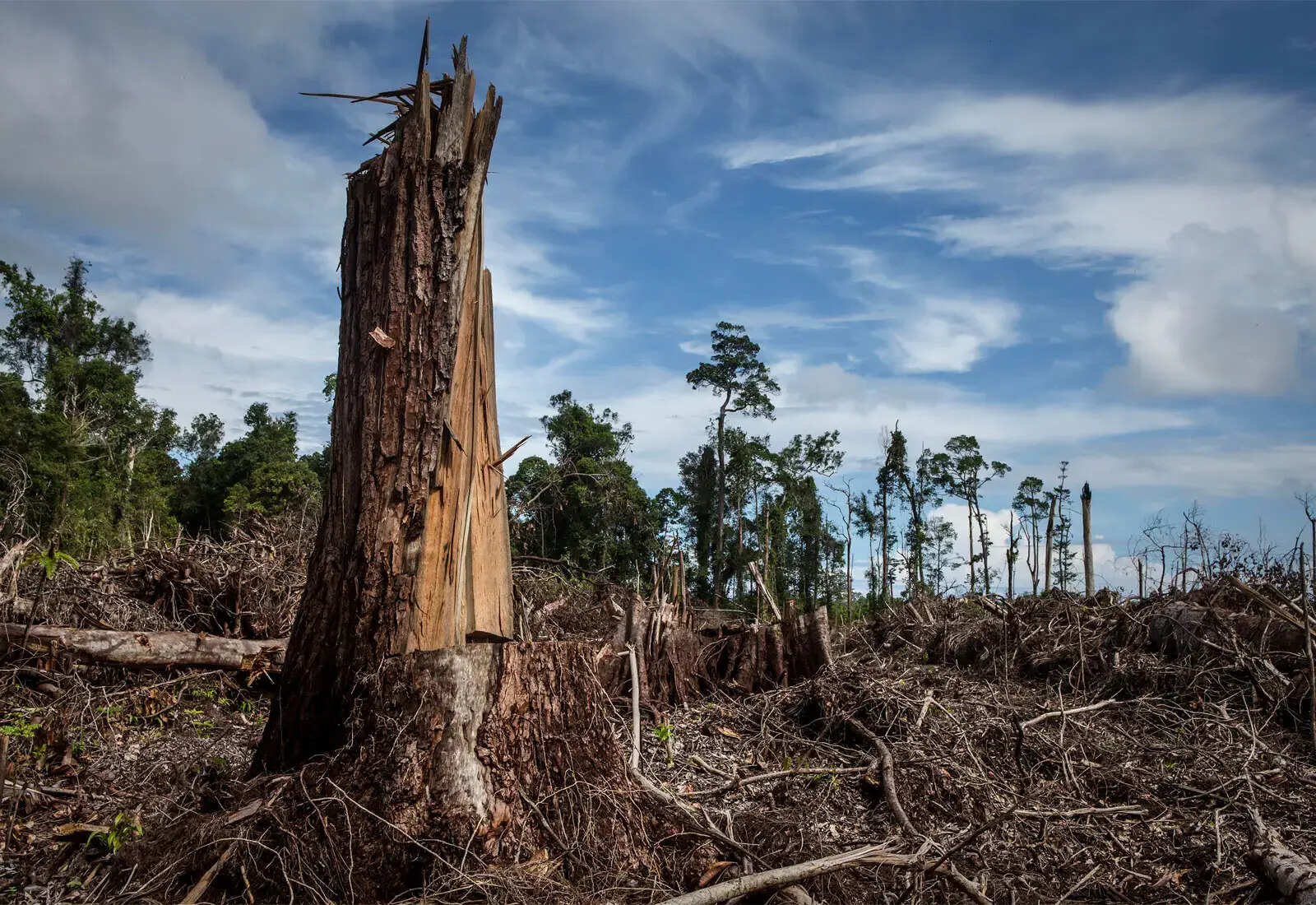
Deforestation is a pressing global issue affecting our planet's health. Did you know that every minute, an area of forest the size of 20 football fields is lost? This alarming rate of deforestation has far-reaching consequences, from climate change to loss of biodiversity. Forests are home to 80% of terrestrial animals and plants, making their preservation crucial. Why should you care? Trees absorb carbon dioxide, helping to mitigate global warming. Without them, carbon levels rise, leading to more extreme weather. Want to learn more? Here are 24 eye-opening facts about deforestation that will help you understand its impact and what can be done to combat it.
What is Deforestation?
Deforestation refers to the large-scale removal of forests, often to make way for agricultural activities, urban development, or other human needs. This practice has significant impacts on the environment, biodiversity, and climate.
-
Deforestation is responsible for about 15% of global greenhouse gas emissions, contributing to climate change.
-
Every year, approximately 18 million acres of forest are lost, equivalent to 27 soccer fields every minute.
Causes of Deforestation
Understanding the causes of deforestation helps in finding solutions to mitigate its effects. These causes are often complex and interlinked.
-
Agriculture is the leading cause, with large areas of forest cleared for crops like soy, palm oil, and cattle ranching.
-
Logging for timber, paper, and other wood products also significantly contributes to forest loss.
-
Urbanization leads to deforestation as cities expand and infrastructure develops.
Effects on Biodiversity
Forests are home to a vast array of species. Deforestation disrupts these ecosystems, leading to loss of biodiversity.
-
Habitat loss due to deforestation threatens 80% of Earth's terrestrial animals and plants.
-
Endangered species like orangutans, tigers, and elephants are at higher risk due to shrinking habitats.
Impact on Indigenous Communities
Indigenous communities often rely on forests for their livelihood, culture, and traditions. Deforestation affects these communities profoundly.
-
Displacement of indigenous people occurs when forests are cleared for development.
-
Loss of traditional knowledge happens as indigenous communities lose their connection to the forest.
Climate Change and Deforestation
Forests play a crucial role in regulating the Earth's climate. Their destruction has far-reaching consequences.
-
Carbon storage is significantly reduced when forests are cut down, releasing stored carbon dioxide into the atmosphere.
-
Rainfall patterns can be altered, leading to changes in local and global weather systems.
Economic Implications
While deforestation can provide short-term economic benefits, it often leads to long-term economic challenges.
-
Soil degradation from deforestation can reduce agricultural productivity over time.
-
Tourism can suffer as natural landscapes and wildlife diminish.
Reforestation and Conservation Efforts
Efforts to combat deforestation include reforestation and conservation initiatives aimed at restoring and protecting forests.
-
Reforestation projects plant trees to restore deforested areas, helping to rebuild ecosystems.
-
Protected areas are established to conserve critical habitats and biodiversity.
Technological Solutions
Technology plays a role in monitoring and addressing deforestation. Innovations can help track and reduce forest loss.
-
Satellite imagery is used to monitor deforestation in real-time, providing data for conservation efforts.
-
Drones help in reforestation by planting seeds in hard-to-reach areas.
Global Policies and Agreements
International cooperation is essential in addressing deforestation. Various policies and agreements aim to tackle this issue.
-
The Paris Agreement includes commitments to reduce deforestation as part of broader climate goals.
-
REDD+ (Reducing Emissions from Deforestation and Forest Degradation) is a global initiative to incentivize forest conservation.
Individual Actions to Combat Deforestation
Individuals can also play a role in reducing deforestation through conscious choices and actions.
-
Supporting sustainable products helps reduce demand for goods linked to deforestation.
-
Reducing meat consumption can lower the need for land cleared for cattle ranching.
Success Stories in Forest Conservation
There are numerous examples of successful forest conservation efforts around the world, providing hope and inspiration.
-
Costa Rica has doubled its forest cover in the last 30 years through strong conservation policies.
-
The Great Green Wall initiative in Africa aims to combat desertification by planting trees across the continent.
-
Community-led conservation in the Amazon has helped protect vast areas of rainforest from deforestation.
Taking Action Against Deforestation
Deforestation isn't just a buzzword; it's a real problem affecting our planet. Forests, which cover about 31% of Earth's land area, are disappearing at an alarming rate. This loss impacts biodiversity, climate, and even human health. Every year, we lose millions of acres of forest due to logging, agriculture, and urban expansion.
But there's hope. Simple actions like supporting sustainable products, reducing paper use, and planting trees can make a difference. Governments and organizations worldwide are also stepping up with policies and initiatives to protect and restore forests.
By staying informed and making conscious choices, everyone can contribute to the fight against deforestation. It's not just about saving trees; it's about preserving our planet for future generations. Let's take action now and be part of the solution.
Was this page helpful?
Our commitment to delivering trustworthy and engaging content is at the heart of what we do. Each fact on our site is contributed by real users like you, bringing a wealth of diverse insights and information. To ensure the highest standards of accuracy and reliability, our dedicated editors meticulously review each submission. This process guarantees that the facts we share are not only fascinating but also credible. Trust in our commitment to quality and authenticity as you explore and learn with us.


